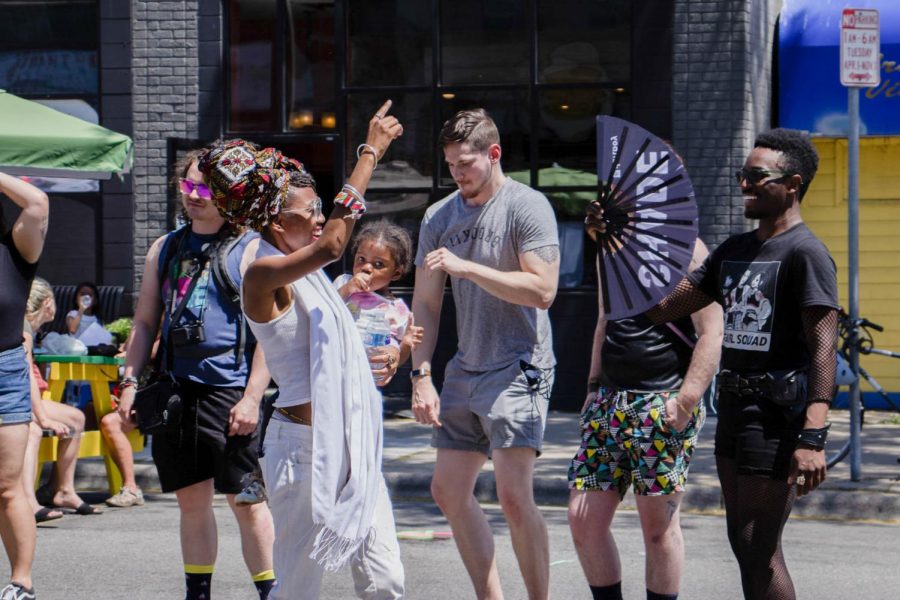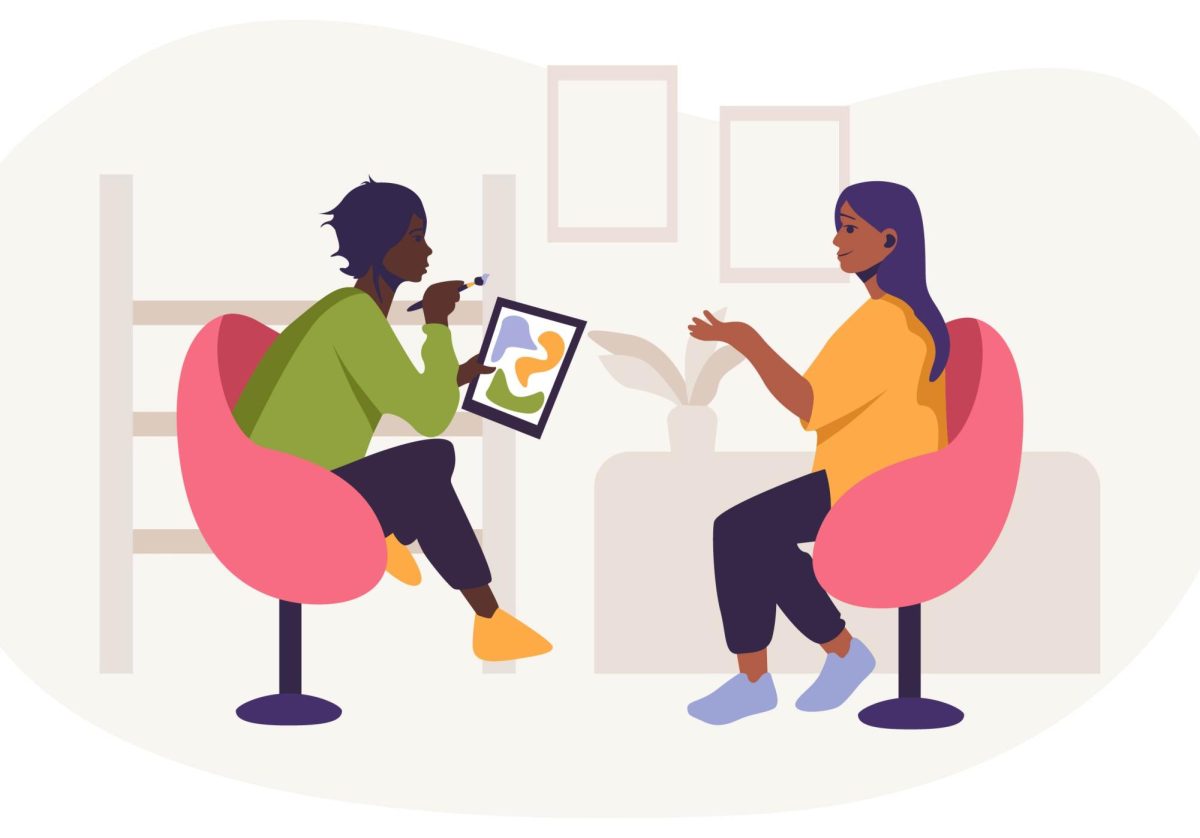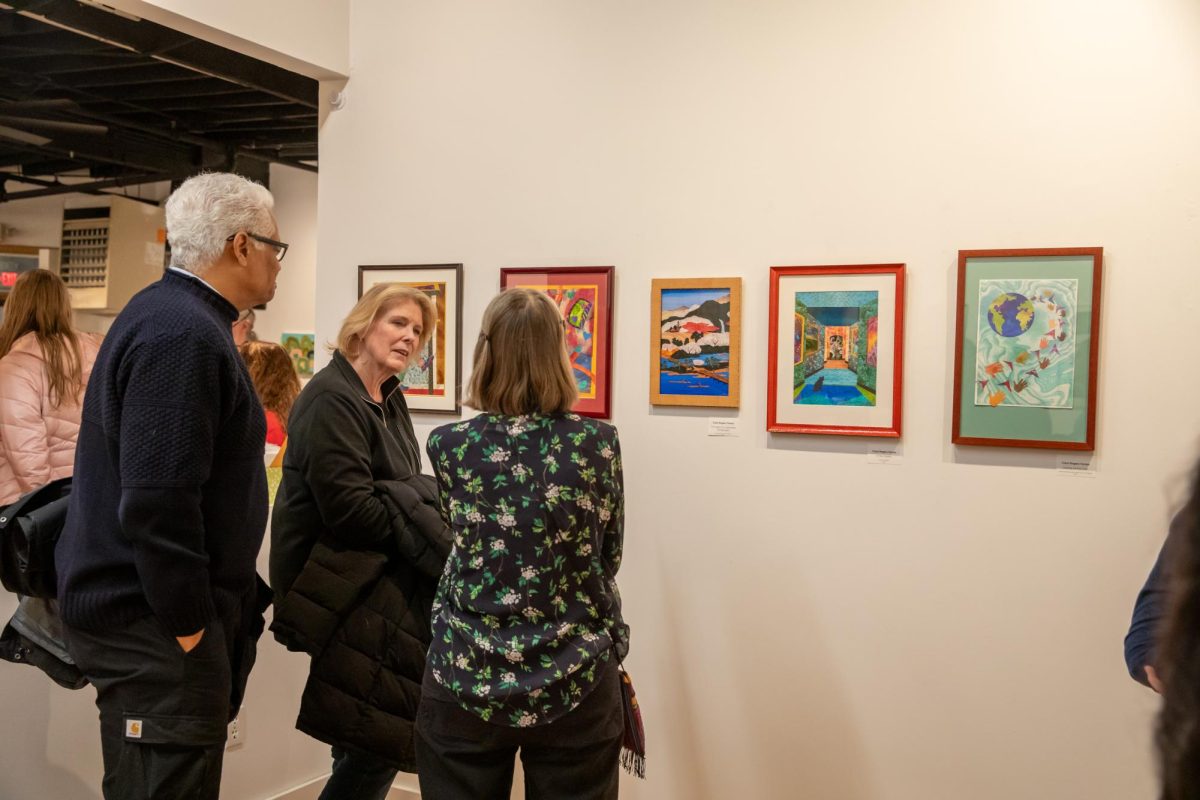“It’s more than the media shows you.” “Hold police accountable.” “We deserve peaceful justice.”
These are just some of the phrases that stood tall on South Nicollet Avenue Saturday afternoon. Set on display for the public to see were the wooden murals created during the summer of 2020 following the murder of George Floyd and the ensuing social reckoning and uprising.
The boards were assembled and exhibited as part of the Backyard BBQ, a Whittier neighborhood community event hosted by Pimento Relief Services, Save The Boards MPLS, Memorialize the Movement and the Whittier Alliance.
The groups organized the occasion with the hopes of building community and healing through joy by offering an afternoon of food, music and celebration.
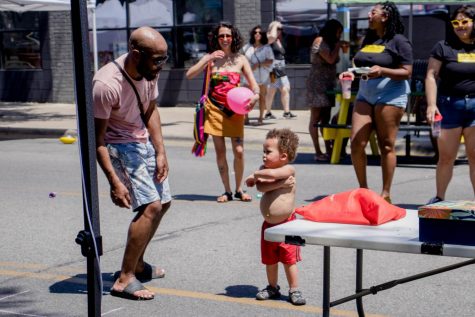
Despite the over 90 degree heat, the festivities went on strong with live poetry readings, free Impossible Burgers courtesy of Pimento Jamaican Kitchen and live painters adding to the already remarkable display of visual art.
The several plywood murals stood in the center of the blocked-off section of the street, showcasing various colorful portraits, intricate artist tags and samples of text begging for justice for George Floyd and abolition of the Minneapolis Police Department.
This was the second time in the past month that Save The Boards and Memorialize the Movement have assembled the boards for an exhibition. On May 22, the two organizations co-hosted an open-air art exhibit in Phelps Park, featuring nearly 150 pieces of artwork that both organizations have worked to locate and store over the past year.
“Our first event was definitely a little more focused on being reflective and sensitive to what bringing out all those boards might feel like for some people,” said Save The Boards founder Kenda Zellner-Smith. “With this event, we want to celebrate Black joy, and we want to honor Black laughter and being carefree while existing as Black. Those are things that often get overlooked because of the climate and the turmoil that’s gone on against Black people in this country every day.”
CEO of Pimento Jamaican Kitchen and Executive Director of Pimento Relief Services, Tomme Beevas, echoed the importance of maintaining a space for healing amid continued suffering and trauma.
“Even with the pain, we know we still have to celebrate life,” Beevas said. “We all have to keep moving onward and forward to ensure that we can continue to create better humans, a better planet and a better community as a whole.”
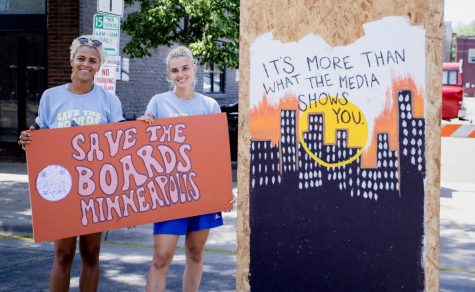
Both Save the Boards and Memorialize the Movement will continue activating the boards for future community events. Founder and executive director of Memorialize the Movement, Leesa Kelly, is currently looking into organizing summer events that would feature the boards in partnership with Twin Cities neighborhood associations and organizations.
“I don’t want to be the person who just stored them in a warehouse and never brought them out again,” Kelly said. “I want to make sure that we can continue this movement and continue this protest through the murals and honor the original purpose of them. We will definitely be out all summer and all fall participating in as many arts and community events as we can.”
In addition to finding pop-up display locations, there are also plans to find permanent exhibit spaces — both physically and virtually — for the boards. One of the long-term goals of these panel reservation organizations is to create a digital archive of the boards they have collected, which, between the two, total over 800 boards. Both Zellner-Smith and Kelly champion the idea that the boards immortalize this historical moment of social change and civil rights.
The boards “aren’t the beginning of this movement, and they’re not the end of the movement. They aren’t going to make change, but they are a piece of the story that is necessary in order to get to that point where change can happen,” Zellner-Smith said.
Kelly expressed her dedication to this work and her commitment to ensuring that the boards are not forgotten.
“We are largely unpaid for this work, and we don’t do it for the money,” Kelly said. “We don’t do it for the clout or the media or public attention. We do it for the love of our people. I do it for the love of my people. If I can continue to activate these murals which were created as an act of protest, and somehow contribute to this movement, this global civil rights movement, I’m gonna do it.”


